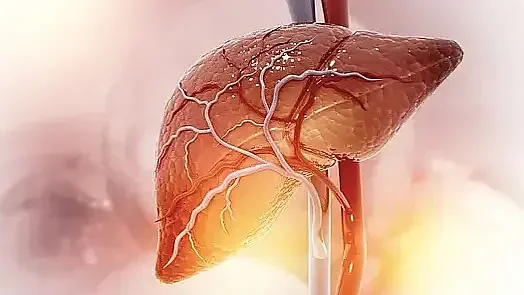The Role of Vitamin A in Fatty Liver Health

A Boost for Liver Wellness
I remember a time during a health talk when an eager attendee asked, "Doctor, is it true that eating a lot of carrots can cure liver issues?" I chuckled, explaining that while Vitamin A, often associated with carrots, does have benefits for liver health, balance is key—especially when it comes to vitamins. Vitamin A has a dual relationship with the liver: it can support liver function when maintained at healthy levels, but overconsumption can actually worsen liver issues. This duality makes understanding the role of vitamin A in fatty liver health a topic worth exploring.
The Liver's Role and Its Vulnerability to Fatty Liver Disease
Non-alcoholic fatty liver disease (NAFLD) occurs when excess fat builds up in liver cells, often linked to metabolic conditions like obesity and insulin resistance. NAFLD is a growing health concern, potentially progressing to non-alcoholic steatohepatitis (NASH), a more severe inflammation of the liver that can lead to cirrhosis. As liver cells are damaged by fat accumulation, their ability to process toxins and store essential nutrients, like Vitamin A, becomes compromised.
When we consider liver health from a medical perspective, we recognize the importance of nutrient balance. Vitamins, and particularly Vitamin A, play a specific role in liver function that has gained attention for its potential in fatty liver health management.
Vitamin A and Liver Health: How They Interact
Vitamin A, an essential fat-soluble vitamin, is stored in the liver and contributes to several key bodily functions, including vision, immune health, and cellular communication. For the liver, Vitamin A has a multifaceted impact:
- Storage: The liver stores about 80-90% of the body’s Vitamin A. A well-functioning liver maintains a proper balance, releasing the vitamin as needed.
- Antioxidant Properties: Vitamin A’s antioxidant functions can help neutralize harmful free radicals in the liver, reducing oxidative stress that worsens fatty liver conditions.
- Cellular Regulation: Retinoic acid, a form of Vitamin A, is involved in gene expression and cellular growth. It supports healthy liver cell regeneration and repair, critical in cases where the liver undergoes ongoing fatty deposits.
However, since it’s stored in the liver, excess Vitamin A from supplements or certain diets can lead to toxicity, harming liver cells instead of healing them. In individuals with existing liver conditions, maintaining a proper balance becomes even more essential.
How Vitamin A Impacts Fatty Liver: Key Considerations
1. Vitamin A as an Antioxidant in NAFLD
NAFLD progression is associated with oxidative stress. Antioxidants, like Vitamin A, help counteract this damage. Studies have shown that appropriate levels of Vitamin A in the body can reduce oxidative stress markers, potentially slowing the progression of NAFLD and even NASH. However, these benefits are observed primarily when Vitamin A is sourced from natural food rather than high-dose supplements, which can contribute to toxicity.
2. The Importance of Dietary Balance
In the context of fatty liver disease, a balanced diet with Vitamin A-rich foods—such as leafy greens, sweet potatoes, and carrots—can support liver function without overwhelming it. These foods contain beta-carotene, a precursor to Vitamin A that the body can convert as needed, thus reducing the risk of toxicity.
People with fatty liver disease should focus on obtaining Vitamin A primarily from food sources, as this allows the body to regulate levels more effectively, avoiding overload. The occasional bit-by-bit approach to intake from whole foods, rather than taking supplements that can flood the system, ensures a safer approach to liver support.
Vitamin A Supplementation: Risks and Recommendations
It’s common for people to assume that if a little of something is good, more must be better. In the case of Vitamin A and fatty liver, moderation is essential. Excessive Vitamin A—especially in its preformed form, such as retinol from supplements—can accumulate in the liver, risking hepatotoxicity and worsening liver inflammation.
- Signs of Toxicity: For those managing fatty liver disease, Vitamin A toxicity can show up as headaches, nausea, and even liver function deterioration. This is why it's generally advised to discuss Vitamin A supplementation with a healthcare provider before starting any regime.
- Safe Dosages: Most adults require around 700-900 micrograms of Vitamin A daily. Those with liver disease should aim to meet this requirement primarily through dietary sources, considering supplements only if they are found to have a deficiency under medical guidance.
The Role of Vitamin A in Fatty Liver Health: Key Benefits
1. Supports Immune Function and Cellular Health
Vitamin A is a potent ally in immune health. For individuals with fatty liver disease, a well-regulated immune system is crucial, as liver dysfunction can leave the body more susceptible to infections and inflammation. Additionally, Vitamin A’s role in cellular health and gene expression supports the liver’s regenerative capacity, aiding in repair when inflammation or damage is present.
2. Protects Against Further Liver Damage
The antioxidant properties of Vitamin A offer a shield of protection against the oxidative stress that contributes to NAFLD progression. This is especially important in the early stages, where damage can be slowed with appropriate dietary adjustments, potentially preventing the transition to more advanced stages like NASH.
Nutritional Guidance: Embracing a Vitamin A-Rich Diet Safely
For most people with NAFLD, the best strategy is to avoid Vitamin A supplements unless recommended by a healthcare provider. Instead, consider a diet with safe sources of beta-carotene, which provides Vitamin A in a form the liver can handle without the risk of overload. Foods such as carrots, pumpkin, and spinach offer a gentle, food-first approach that naturally balances intake without straining liver function.
When to Seek Medical Advice on Vitamin A and Fatty Liver
If you’re managing NAFLD or any form of liver disease, it’s wise to discuss all aspects of your diet with your healthcare provider, particularly regarding fat-soluble vitamins like Vitamin A. A tailored approach to vitamin intake ensures your liver gets the support it needs without the risk of toxicity, which can silently worsen the condition.
Conclusion
Understanding the role of Vitamin A in fatty liver health highlights the delicate balance required for proper liver function. While this vitamin offers significant benefits, especially in supporting immune function and reducing oxidative stress, moderation is crucial. For those managing NAFLD, the bit-by-bit approach—primarily through food sources—ensures a safer path to liver health. In summary, Vitamin A can play a supportive role in fatty liver management, but its benefits come with a reminder: too much of a good thing can indeed be harmful.
Share this article

Dr. Irene Paragas, MD
I am a Medical Doctor, Registered Nutritionist-Dietitian, and seasoned virtual professional. See Full Bio.
-
1. Reyersbach GC, Hanelin J, Joplin RJ. Vitamin A intoxication: report of a case. [DOI]
-
2. Hickenbottom, S. J. et al. Variability in conversion of beta-carotene to vitamin A in men as measured by using a double-tracer study design.
-
3. Muenter MD, Perry HO, Ludwig J. Chronic vitamin A intoxication in adults. Hepatic, neurologic and dermatologic complications.
-
4. Russell RM, Boyer JL, Bagheri SA, Hruban Z. Hepatic injury from chronic hypervitaminosis A resulting in portal hypertension and ascites.
-
5. Schmutz E.A., Zimmermann M.B., Rohrmann S. The inverse association between serum 25-hydroxyvitamin D and mortality maybe modified by vitamin A status and use of vitamin A supplements.
-
6. Park, Y., Smith-Warner, S.A., Zhang, X. et al. Association between use of vitamin and mineral supplement and non-alcoholic fatty liver disease in hypertensive adults.
Superfruit Smoothie There’s something undeniably satisfying about sipping on a superfruit smoothie—a vibrant concoction of nature’s most potent...
How Berberine Helps Reduce Liver Fat Accumulation Several patients visit my practice, often cautious about prescription medications and eager to...
How Plant-Based Diets Help Reverse Fatty Liver As a doctor, I remember a patient who was skeptical about moving to a plant-based diet. "Am I going...

You might enjoy more articles by
Dr. Irene Paragas, MD
 Disease
Disease Diets
Diets Recipes
Recipes Supplements
Supplements Management
Management Calculators
Calculators Quizzes
Quizzes Glossary
Glossary
























